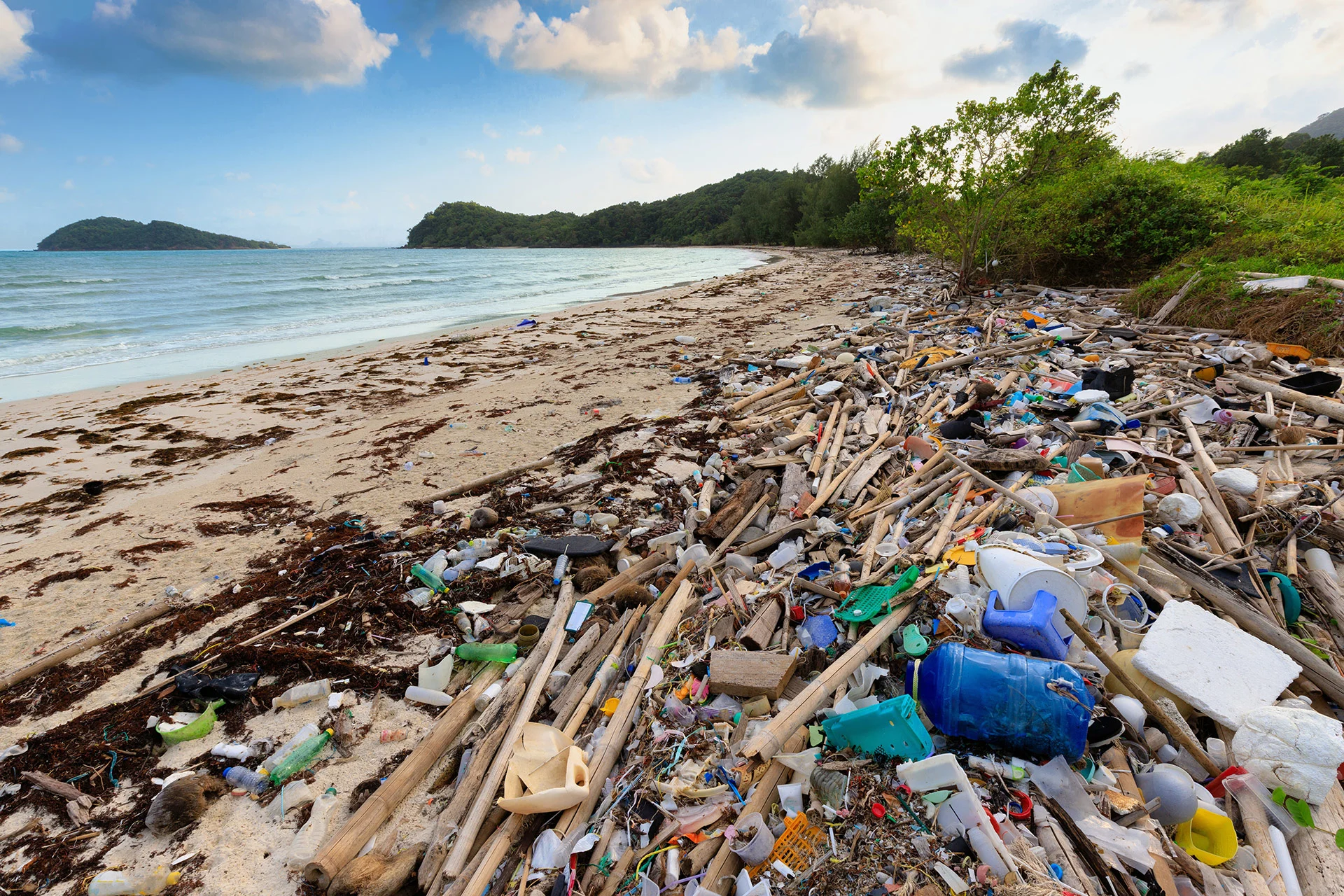
Plastic pollution dumped into oceans will triple by 2040
COVID-19 has taught us is that in times of an emergency, the demand and reliance on single use plastics will skyrocket, and recycling systems will be stalled.
Despite the growth of biodegradable materials and bans on single use plastics, a recent study finds that there could be 600 million tons of plastic in the oceans by 2040, which is equivalent to the weight of over three million blue whales.
Recycling has become increasingly popular over the years, but the study says that the complex composition of plastic materials limits the ability for technologies to easily sort and reprocess them.
For example, black plastic cannot be recycled in Canada because technologies do not recognize them on the sorting belt and pizza boxes cannot be recycled if they are greasy. Many people are in the habit of checking for the optimistic recycling symbol, but the reality is that many recycling facilities cannot save multi-material plastics and 86 per cent of discarded plastics in Canada end up in landfills.
The researchers say that their ominous projection is plausible due to several factors including the rapid growth in plastic production, the prevalent ‘throw-away’ culture and insufficient capacities of waste management systems at a global level.
Single use plastics are projected to increase by over 40 per cent in the next ten years and the amount of plastic flowing into oceans each year will more than double by 2040. However, the researchers reassure us that 78 per cent of plastic pollution can be solved in just two decades by using current knowledge and technologies.
The researchers projected several global outcomes based on different plastic solutions between 2016 and 2040 and found five possible scenarios: ‘Business as Usual’, ‘Collect and Dispose’, ‘Recycling’, ‘Reduce and Substitute’, and an integrated ‘System Change’ scenario that features all of the possible interventions. The reality that plays out will be determined by the level of effort that governments and corporations invest in solving the plastic crisis.
The ‘Business as Usual’ scenario provides a baseline that shows us what the volume of plastic pollution could look like if nations choose to not implement policies that curb it and if we resist changing our consumption habits. If no action is taken, between 11 to 29 million tons of plastic waste will be generated in the next 20 years, which is equivalent to nearly 50 kilograms (110 pounds) of plastic on each metre of coastline in the world.
Compared to ‘Business as Usual’, the annual combined land and ocean plastic pollution rates were reduced by 57 per cent in 2040 under the ‘Collect and Dispose’ scenario and by 45 per cent under the ‘Recycling’ scenario.
Under the ‘Reduce and Substitute’ scenario, the annual combined land and ocean plastic pollution in 2040 decreased by 59 per cent while annual plastic production decreased by 47 per cent. This scenario focused on pre-consumption solutions that reduced the volume of plastics used and replaced plastics with other materials including paper, coated paper and compostables.
The ‘System Change’ scenario yielded the most promising impacts, with the annual land and ocean plastic pollution decreasing by 78 per cent in 2040. This scenario is defined by the conservation of resources, enthusiasm from corporations to design biodegradable and recyclable materials, minimizing waste generation, reducing greenhouse gases and better managing disposed waste.
While the level of pollution significantly differed in each scenario, the costs only varied by less than 20 per cent. The ‘System Change’ and ‘Recycling’ scenarios were the cheapest, whereas the ‘Collect and Dispose’ scenario was the most expensive.
The ‘System Change’ scenario was 18 per cent cheaper than the ‘Business as Usual’ scenario and our current global strategy because of savings from reduced plastic production, revenues from the sales of recycled materials. Waste management costs were the only expenses in this scenario and the study states that this is generally financed by taxpayers.
Many countries, states and corporations have created initiatives to reduce plastic pollution, including straw bans and fees for plastic bags at grocery stores. But a stark environmental lesson COVID-19 has taught us is that in times of an emergency, the demand and reliance on single use plastics will skyrocket, and recycling systems will be stalled.
Some of the biggest challenges that the study identified include scaling collection to all households in the world and increasing the role of ‘waste pickers’ (the informal collection and recycling sector who bring municipal solid waste to recycling centres in low- and middle-income settings).
The researchers say that the ‘System Change’ scenario could be put into action by consumer, corporate and policy actions that both lower the demand for plastics and increase the rate that plastic waste is reused and recycled.
“Further innovation in resource-efficient and low-emission business models, reuse and refill systems, sustainable substitute materials, waste management technologies and effective government policies are needed,” the study states.
“Substantial commitments to improving the global plastic system are required from businesses, governments and the international community to solve the ecological, social and economic problems of plastic pollution and achieve near-zero input of plastics into the environment.”
Top Photo Credit: Adobe Stock












